The support staff at Craig Road has one thing in common, our love for animals. Working in the animal care field is not for everyone. It requires patience, understanding, and an unyielding desire to be a part of the process of caring for our patients. We strive to achieve the best possible team to offer the best possible care for your pet. Client/patient education is one of our top priorities. We highly encourage you to contact our office if you have any questions regarding your pets.

Mike Falconer
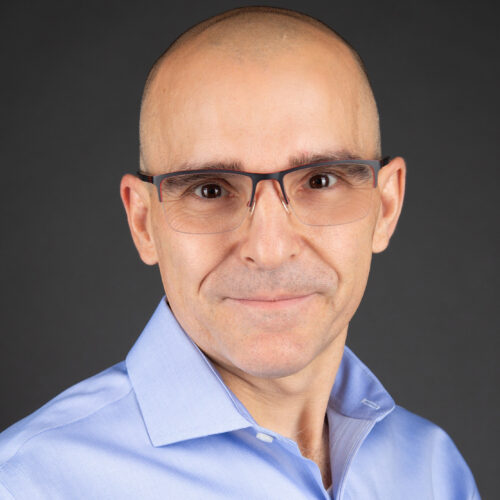
Chad
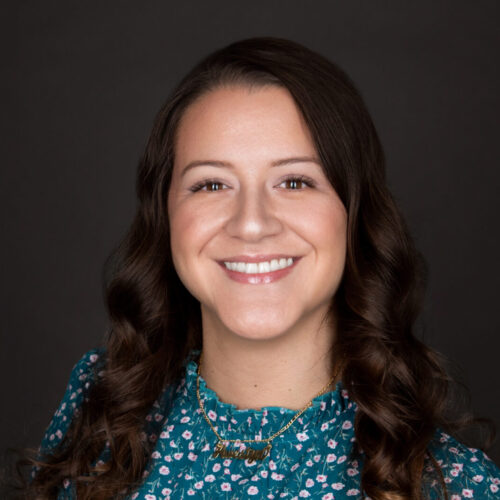
Ronni
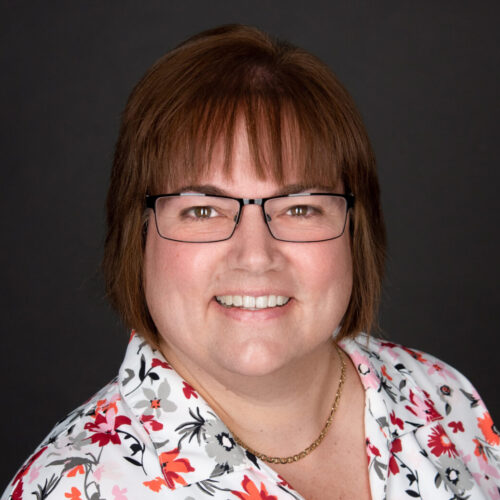
Colette
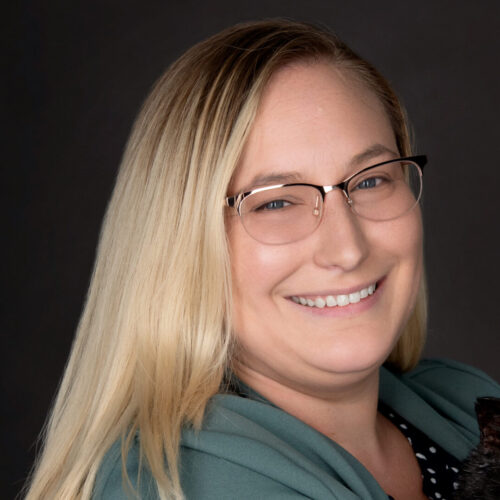
Erica

Alisha
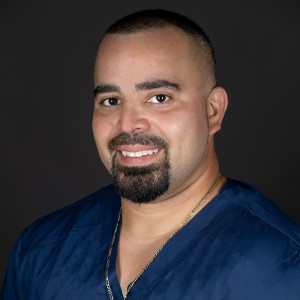
Marvin
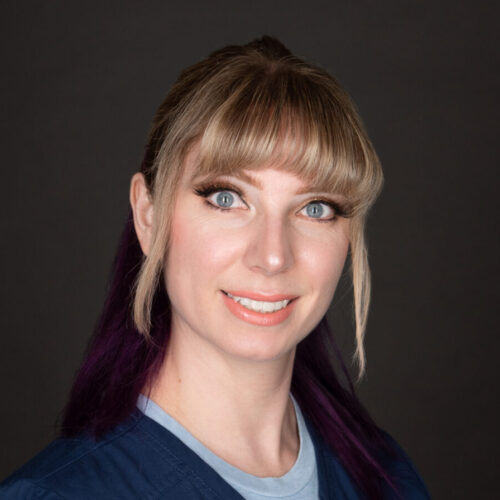
Sarah
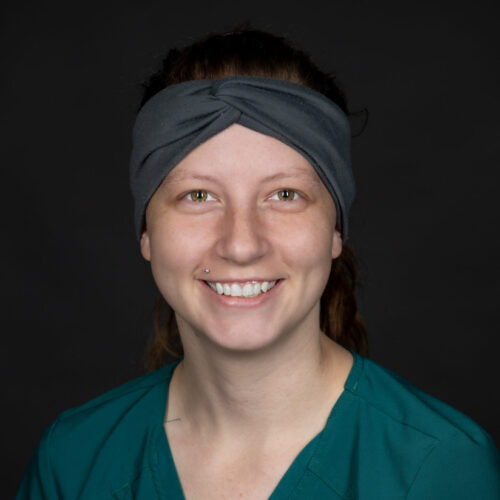
Angela
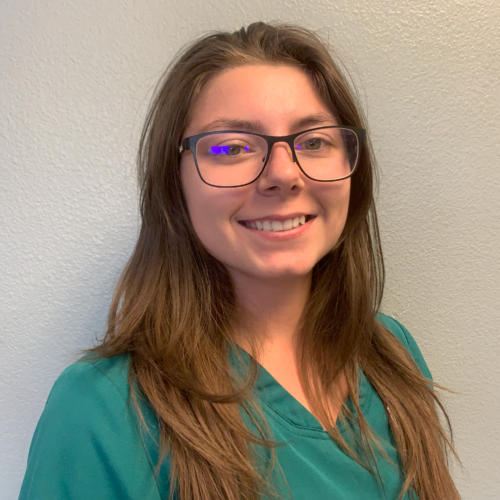
Hallie
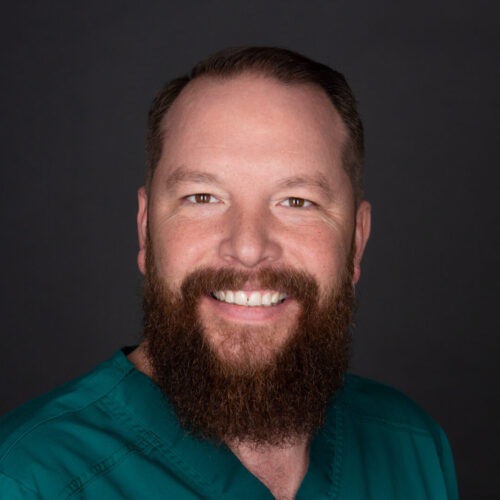
Wesley
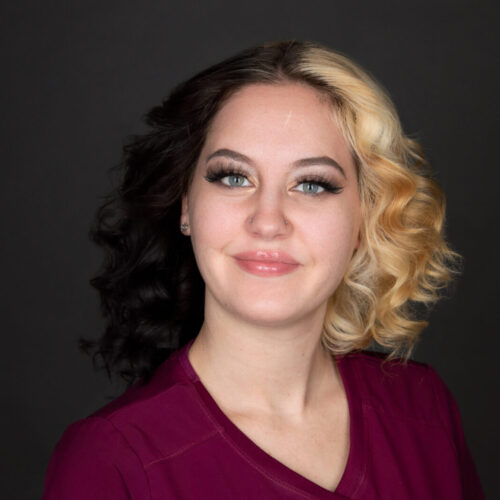
Angelina

Michelle
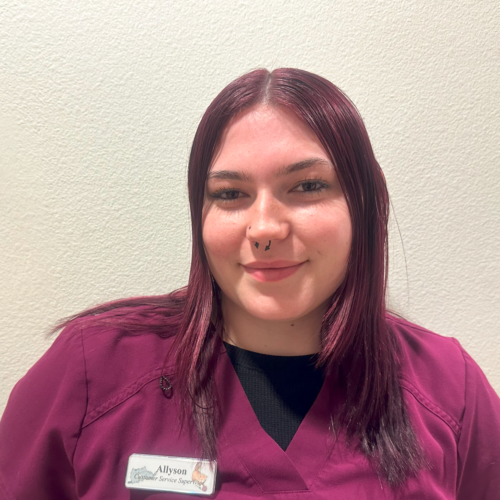
Allyson
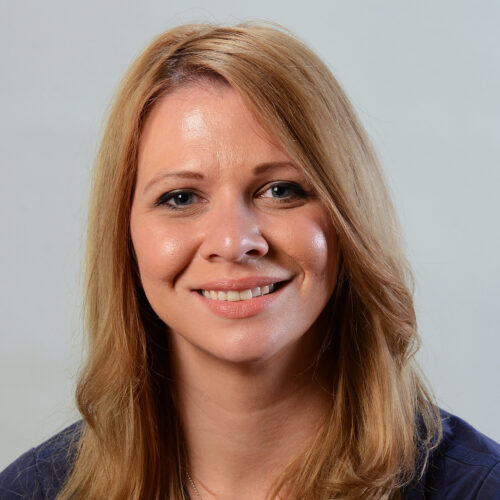
Nicole
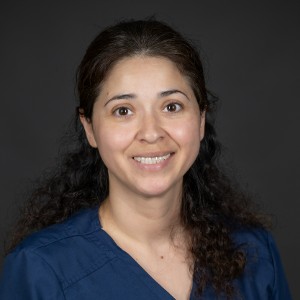
Susie
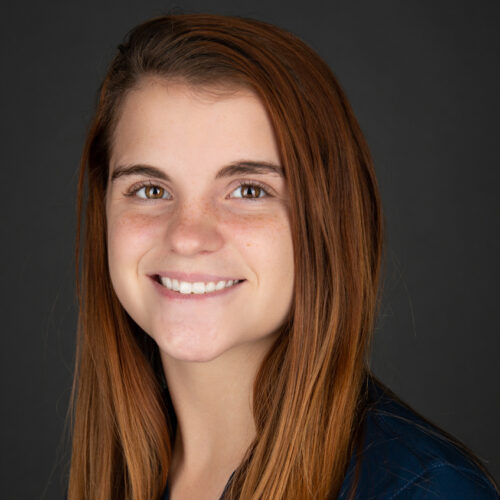
Dempsey
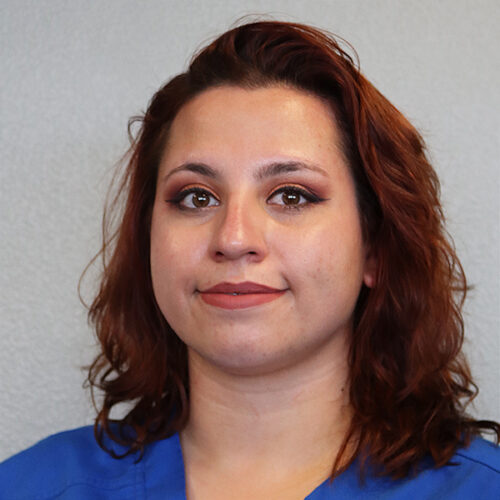
Marissa
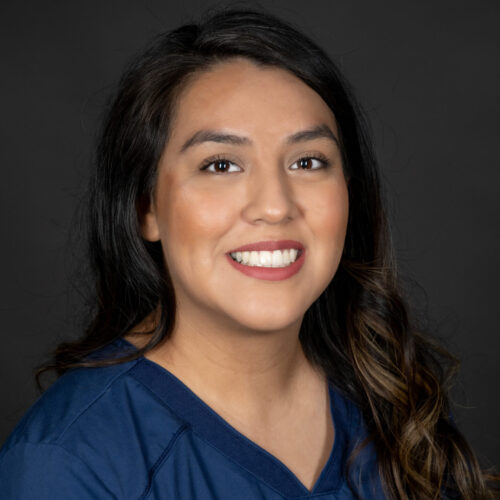
Kim
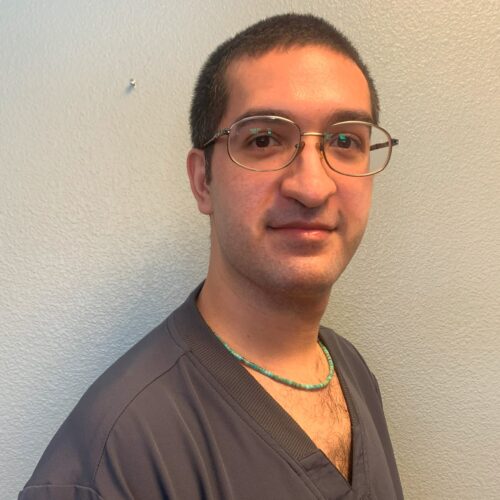
Isaac
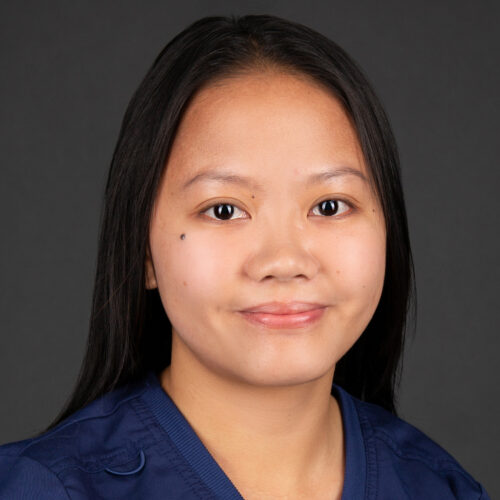
Kim
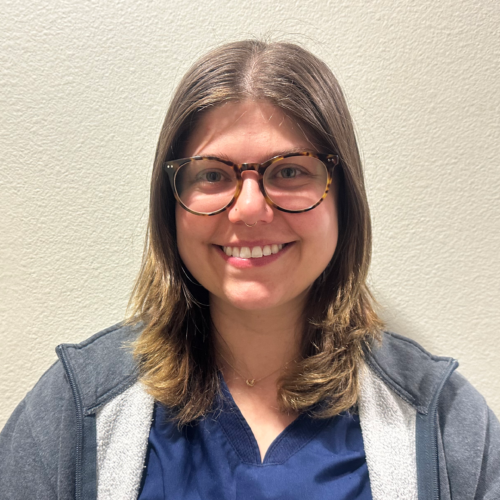
Brianna
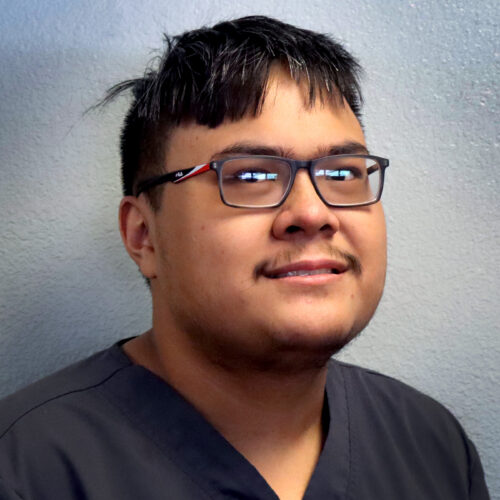
Joseph
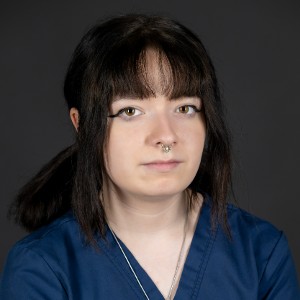
Lilly
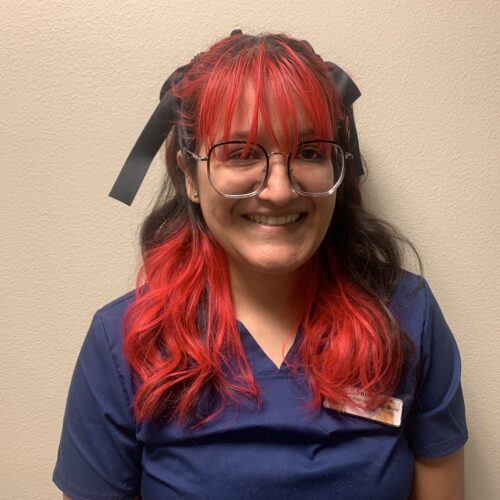
Sheila
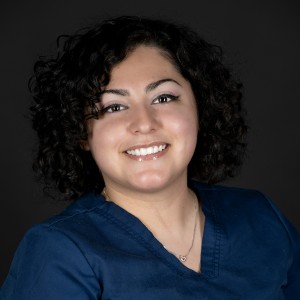
Esme
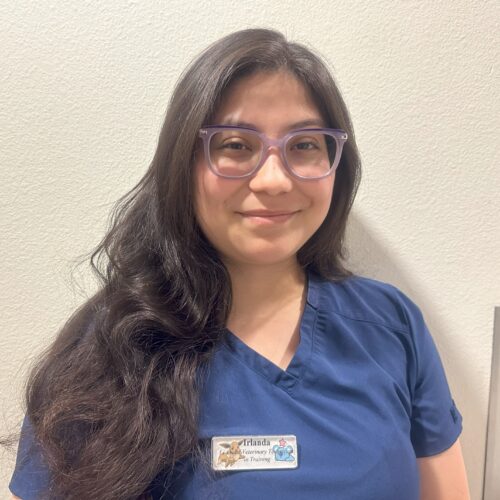
Irlanda
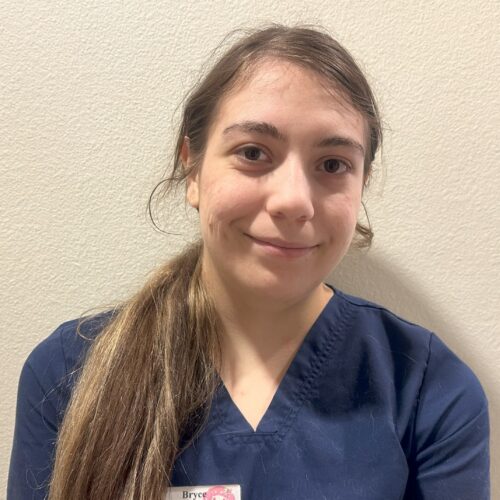
Bryce

Hospital Administrator
Mike Falconer
Originally hailing from Scotland, Mike joins Craig Road Animal Hospital as Hospital Administrator following six successful years transforming two veterinary hospitals in Arizona. Prior to that he worked in the U.S. and internationally along a wide-ranging professional career.
With a focus on marketing and customer service, Mike brings a diverse set of skills to Craig Road Animal Hospital. He writes extensively on management and marketing topics, and is involved in various veterinary management, human resource, and marketing organizations.
Mike is responsible for all non-medical aspects at Craig Road Animal Hospital. If you have any comments, concerns, or complaints he would welcome speaking with you either in person, on the phone, or by email.
Mike supports retired Greyhound rescue and shares his home with and retired racer, Chip, along with an Russell Terrier Mix named Dapple. In his spare time, Mike enjoys reading, film and the theater. He also spends far too much time on Twitter.

Deputy Hospital Administrator
Chad
Chad is originally from Nanty Glo, Pennsylvania. He moved to Flagstaff, Arizona to attend Northern Arizona University. Chad is a father to two daughters, Miesha 23, and Ashley 20. In November of 2015, he began working with Craig Road Animal Hospital as Project Manager.
The position of Project Manager encompasses multiple roles including payroll, human resources, and a number of other less well-defined areas of the hospital -lending a hand where needed. For him, the most fulfilling part of working at Craig Road is that he gets to work closely with his brother.
In his spare time, Chad enjoys going hiking and backpacking. He has backpacked in numerous places; The Grand Canyon in Arizona, Yosemite National Park in California, and Yellowstone National Park in Wyoming, to name but a few. His favorite place to hike here in Las Vegas is Red Rock Canyon. He also enjoys golf, alternative music, and his favorite food is Sushi. Chad shares his home with an orange tabby cat named Matty!

Assistant Hospital Administrator
Ronni
Ronni, born and raised in Las Vegas, was the Customer Service Supervisor at Craig Road Animal Hospital but is now our Assistant Hospital Administrator. She works with Mike Falconer, the current Hospital Administrator, to keep the Hospital running smoothing.
“My job is to manage the floor,” Ronni explains, “ Making sure the flow is going well, that the staff and the doctors are doing their part.”
Ronni grew up with pets, her father owns chickens, goats and sheep. At home, Ronni has a Chocolate Labrador mix named Dakota. According to Ronni, she’s not a typical Labrador and is a rather anxious dog. In her free time, Ronni likes to go hiking and see the sights available to her in Las Vegas.

Human Resources Manager
Colette
Colette is from New York and has lived in the Las Vegas area since 1993. She’s been married for 26 years and has a 28-year-old son and a 23-year-old daughter. Colette has been with Craig Road Animal Hospital for about nine years. She started as a customer service representative before working in human resources.
“I absolutely love Craig Road and what my job duties entail,” she said.
During COVID, Colette and her husband bought their first travel trailer and have been “glamping” for the past year. Colette said she’s been enjoying glamping more than she thought she would.
She has three dogs; two Dachshunds named Lilo and Stitch, and a mixed Terrier named Noodle. Colette also has four cats named after different kinds of bread – Sour (sourdough bread), Rye (rye bread), Shorty (shortbread), and Olive (olive bread).

Inventory Manager
Erica
Erica is a native of Southern New Jersey and grew up near Cape May. She and her husband moved to the Las Vegas area earlier this year for her husband’s job at the Veteran Affairs hospital in North Las Vegas. Erica said that so far, she adores living in Las Vegas.
“We haven’t been able to do a lot on The Strip, but we’ve gone hiking, done the bike trails, just driving around and seeing the mountains is amazing,” she said. “Where I lived in Jersey, it’s very flat. I thought I wouldn’t like the desert, but it’s actually very beautiful.”
Growing up, Erica’s parents bred German Shepards and her mother also worked for a local veterinarian office. She said her parents handled several adult dogs, a couple of litters, and a few cats by the time she was born. Erica joked that she “came last on the totem pole.” During her college years, Erica also had a couple of pet rats.
“I’m just a big animal lover in general, including snakes and spiders,” she said.
A self-described math nerd, Erica graduated from Liberty University with a degree in Mathematics. Originally, Erica considered becoming a math teacher and even got her teaching certificate. She said she’s dabbled in a few things since graduating, but nothing felt like the right fit for her.
“I’m just a curious math nerd,” she said. “So I just like doing things I have to learn a lot about, and things that are challenging.”
Erica found her job at Lone Mountain Animal Hospital while working at the sister location, Craig Road Animal Hospital, as an administrative hospital assistant.
In her spare time, Erica likes to solve puzzles, whether it’s sudoku or regular puzzles. She also enjoys biking, hiking, and bowling. She has four cats named Aragorn, Gandalf, Salem, and Ziggy Stardust.

Digital Marketing Manager
Alisha
Born in California and raised in Bloomfield Hills, Michigan, Alisha has always had a soft spot for animals. Her childhood companions were a guinea pig named Gina and a cockapoo named Shorty. Though her professional journey didn’t initially revolve around the animal world, her love for animals remained a constant.
Alisha’s passion for marketing took root in high school when her mother launched a makeup line called 23Kissez. Tasked with promoting the business on social media, working vendor shows, engaging with press, and identifying growth opportunities, she was instrumental in the company’s early stages. This experience ignited her interest in marketing and led her to an internship at Allied Integrated Marketing Detroit. As a publicity and promotions intern, she honed her skills tracking media coverage, organizing promotional events, pitching promotional ideas, assisting with movie screenings, and managing social media posts.
While pursuing her business studies at Wayne State University, Alisha worked as a LASIK Coordinator and Marketing Assistant for an ophthalmology practice in Fraser, Michigan. Her responsibilities spanned from creating LASIK promotions and managing social media platforms to influencer marketing and coordinating LASIK surgeries. This role intensified her love for social media and led to her starting a business as a freelance social media manager for local businesses.
In 2023, Alisha relocated to Las Vegas and joined the teams at Craig Road Animal Hospital, Lone Mountain Animal Hospital, and Aliante Animal Hospital as the Digital Marketing Manager. Her expertise in marketing and her love for animals make a winning combination in her role.
When she’s not immersed in the world of digital marketing, Alisha enjoys reading, binge-watching Netflix shows, listening to music, creating content, dining at the local food scene in Las Vegas, and spending time with her 3-year-old bulldog, Kushner.

Supervising Licensed Veterinary Technician
Marvin
Marvin was born and raised in Miami, Florida. While he has always had a love for animals, it wasn’t until he was 15 when his pet dog showed him the love these animals can share with humans. Marvin said that he enjoys working at Craig Road Animal Hospital because of the way we utilize his skills as much as possible and the trust the doctors have in the veterinary technician. “This is also like a teaching clinic,” Marvin said. “I can share my skills and show how to do things the right way while still learning from others. Every day we learn something new.”
Being a pet owner himself, Marvin understands how important animals can be to a family. “I treat every patient, every dog, every cat, as if they are my own,” Marvin said. “That says a lot because my dogs are my number one.”
Marvin likes to work with aggressive animals, trying to make their stay here as stress free and comfortable as possible. He says that it is important to be able to read and recognize body language to understand where they’re at. While the technician doesn’t see a future without animals, he does like to explore the outdoors in his spare time.
Marvin has a Labrador retriever, a Pit Bull, and a domestic shorthair cat that he brought with him from Miami.

Supervising Licensed Veterinary Technician
Sarah
Sarah comes to Craig Road from the Golden state of California. The Veterinary Technician says that she can remember wanting to work with animals at a very young age. “I was the little girl that has all the photos of me holding a cat and wearing a Barbie stethoscope,” Sarah said. Her household has always been filled with animals, mainly cats, dogs and wolves.
Her passion for animals and love for wolves have led Sarah to taking care of them in her spare time at Lucerne Valley Wolf Sanctuary. Sarah has been volunteering as an animal handler there for the past 14 years. It is also where she wound up falling in love with Segoni, her Shepard-wolf mix.
Segoni does have to share Sarah’s affection with three huskies, 17 tarantulas and a carpet python at home.
Sarah said that she eventually would like to become a D.V.M. and work with exotic and zoo animals. She believes that animals have so much love to give and she enjoys her job because she is able to return that affection every day. The animal lover said that this isn’t a career for her, it’s her life. “This has been a passion of mine since I was a little girl and will be until the day I die,” she said. “I can’t picture myself doing anything else.”

Supervising Exam Room Assistant
Angela
Angela was born and raised in Las Vegas and has always had a passion for working with animals. She grew up around dogs and reptiles, and says she is definitely a dog person and loves boxers. “I’ve always wanted to work with animals even as a young kid,” Angela said.
Before coming to Craig Road Animal Hospital, Angela was working maintenance and construction at Lake Las Vegas, but she wanted to get involved in the veterinary world, and had heard great things about Craig Road.
Angela has five pets at home, a boxer named Tyson, a pug named Eclipse, a dachshund named Bentley, a Pitbull name Ice, and a chihuahua named Glitch. She is also a mother of two wonderful girls named Madison and Gracie. In her free time, Angela enjoys fishing, camping, hiking, and going disc golfing.

Lead Exam Room Assistant
Hallie
Born and raised in San Diego, Hallie has called Las Vegas home for the past five years. Her journey at Craig Road Animal Hospital began as a customer service representative, where she quickly advanced to the exam room assistant position before ultimately becoming the Lead Exam Room Assistant.
Before joining Craig Road Animal Hospital, she gained experience in various customer service roles, including fast food. Her passion for animals was evident through her volunteer work at animal shelters prior to joining Craig Road. Her dream was to start as a receptionist and work her way up, a goal she has successfully achieved.
Throughout her life, she has had the joy of caring for Chihuahuas and cats, but currently shares her life with a lovable German Shepherd Husky mix named Ana.
In her spare time, she indulges in outdoor activities like hiking, dog training sessions with Ana, and socializing with friends.

Building and Transport Supervisor
Wesley
Wesley has been working with animals for over 13 years. He comes from Huntington, Indiana. After graduating high school, he joined the U.S. Navy. Wesley then spent a few years in San Diego, California studying at Pima Medical Institute and starting his career in veterinary medicine.
Wesley has always wanted to work with animals. When he was very young, he helped a large animal vet on a friend’s farm. It was from that moment on that Wesley realized that working with animals was something he wanted to do.
This passion brought Wesley to Craig Road Animal Hospital. “It’s a great facility,” he said. “I get to work with a lot of knowledgeable doctors and staff. It’s a wonderful learning environment.” Wesley is our Building and Transport Supervisor. He is also in charge of our Pets in Transit program, a transportation service that provides non-emergency transport for pets all around Southern Nevada.
Wesley’s best friend is a rescued Pit Bull named Piglet. He also enjoys cooking up barbeque for all the staff members at the hospital, which we don’t mind one bit.

Customer Service Supervisor
Angelina
Angelina was born and raised right here in Las Vegas.
Growing up, her family had plenty of pet dogs with the majority being chihuahuas or pit bulls. For this reason, she has a soft spot for Pitbulls in particular. She’s also had several exotics such as lizards, geckos, and ferrets. Today she has four Akitas, three American and one Japanese who she loves dearly. One day, she hopes to own a Cane Corso and a French Bulldog.
Before joining the team at Craig Road, she worked in child care and pediatrics. “You could say I have an inkling for taking care of others.” She says. “Pets was the best way to go after kids. I wanted to try something new so I started to take care of fur babies instead of actual babies.” Her desire to change things up, look after pets and to learn to care properly for her own pets lead her to take up a position at the animal hospital. She enjoys interacting with puppies and has gained an affinity for cats.
Outside work, Angelina likes roller skating. She frequents skating rinks and finds it to be a fun, relaxing activity. She also has a fondness for thriller and horror movies, particularly ones that include Michael Myers. Outside of those activities, she likes sightseeing, star gazing and seeing what’s new around Paradise.

Supervisor Receptionist
Michelle
Michelle, a native of Las Vegas, has always had a unique connection to the world of aquatic life, thanks to their Dad’s expertise as an aquarist during her upbringing. Although their family dynamic didn’t include traditional pets, they shared their home with fish during those early years.
Prior to joining the team at Craig Road, Michelle worked as a medical assistant and briefly worked at the airport. Michelle’s enthusiasm for her current role at Craig Road is notable, as they believe it to be one of the most honorable jobs. They thrive on the responsibility of being on the front lines, ensuring the well-being of these precious fur babies, a role they find deeply rewarding.
During their free time, Michelle channels their creative energy into artistry, with a penchant for digital art, painting, and sculpting. They also find solace in the great outdoors, frequently exploring the Red Rock hiking trails and immersing themselves in the wonders of nature. Michelle enjoys the companionship of two wonderful dogs, marking their first experience as a pet owner. Sunny, their 11-year-old miniature poodle, holds a special place in their heart, alongside their cheerful Shih Tzu companion.

Customer Service Supervisor
Allyson
Allyson, a Las Vegas native, grew up in a household full of animals, especially reptiles. This was thanks to her dad, who has a passion for animals and would often bring home exciting desert discoveries, such as tiny snakes and geckos. These experiences ignited her passion for zoology, which she plans to pursue in school.
Allyson entered the veterinary field and transitioned from managing a doggie daycare to her current role at Craig Road Animal Hospital, where she works in customer service.
Apart from her professional life, she enjoys playing video games, TV shows, crochet projects, and all things related to Harry Potter. She cherishes the time spent with her pets, including Sparrow the bearded dragon, Taupe the hairless Doberman, Hazel the Belgian Malinois, and Ace the Australian Kelpie.
As a supervisor, Allyson places great importance on punctuality and strives to foster a strong sense of teamwork and camaraderie within the staff at Craig Road Animal Hospital.

Licensed Veterinary Technician
Nicole
Nicole was born and raised right here in Las Vegas. The Licensed Veterinary Technician absolutely adores animals. Her earliest memories are visits to animal parks with her family. She would eventually like a change of climate and move to Washington to work with exotic animals in a zoo.
Like many of our staff members, Nicole has a particular special talent as well. “I have a great connection with scared dogs,” she said. “I have a certain amount of compassion for them and just want them to know we are here to help.”
Nicole said that it is great to be able to work with such a great team and looks forward to coming into Craig Road Animal Hospital. “It’s a fun staff and that adds to the levity of a stressful and sometimes emotionally draining job,” Nicole said. “It’s nice to be able to work with others who can stay upbeat and have a sense of humor while still providing quality care.”
Nicole is an experienced traveler and is preparing for a trip with her son and husband to Greece and Japan. She also has two blue nosed pits and a Shepard mix, all of whom she gives tons of tender, love, and care to.

Licensed Veterinary Technician
Susie
Susie comes from Los Angeles, California. Working with animals is the only thing she has ever wanted to do. She has worked in the industry for over 15 years.
This Licensed Veterinary Technician is also Dr. Mych’s Exam Room Assistant. Her degrees are in working with exotic animals, something she thoroughly enjoys. Susie’s dream is to work with these animals at a zoo in the future.
While working with puppies and giving vaccines are fun, Susie said that Craig Road Animal Hospital has taught her how equally important it is to be there for the client as well as their pet.
“I always bond with people when their pets are really sick,” Susie said. “They need our support and being there for them when they are going through a hard time is something that matters a lot to me.”
Susie has a few pets of her own. Being greeted after a long day by her four cats, two dogs and a fish always puts a smile on her face. On her days off she enjoys watching a comedy film with her husband.

Licenced Veterinary Technician
Dempsey
Born and raised in Bel Air, Maryland, Dempsey began riding horses at the age of three. She explains that she ‘grew up taking care of animals’, and by the age of twelve, Dempsey had decided that she would make a career of it.
Dempsey states that the most rewarding part of her job is helping animals to get well. She describes herself as being ‘laid-back’, but appreciates Craig Road Animal Hospital’s fast-paced environment, where she never gets bored! Dempsey is one of our Licenced Veterinary Technicians.
Dempsey is the proud parent of Rocky, a Bullmastiff/Rottweiler mix. In her spare time, which according to Dempsey is very spare indeed, she enjoys spending time with her family.

Licensed Veterinary Technician
Marissa
Marissa is a Las Vegas native and has lived in Nevada all her life. She’s been a life-long animal lover and was interested in working in animal medicine from a young age. Marissa originally wanted to work with horses, but changed her mind and focused more on small animal medicine. She said she still loves horses but loves cats a little bit more.
Marissa started working at Craig Road Animal Hospital as a veterinary assistant extern from the Pima Medical Institue. Afterward, she was hired and passed her Veterinary Technician National Exam (VTNE) to become a licensed veterinary technician. Marissa said she enjoys the teamwork and collaborative environment at Craig Road.
“It’s a fun environment and it’s always busy, unlike a smaller clinic,” she said. “There are so many things you can do here. We have laparoscopic, we have the laser therapy, there’s just so much that we do.”
In her spare time, between balancing schoolwork and her job at Craig Road, Marissa enjoys watching ‘Saturday Night Live’ and stand-up comedy. She also enjoys hanging out with her cat while relaxing.

Licensed Veterinary Technician
Kim

Licensed Veterinary Technician
Isaac
Born and raised in Las Vegas, Isaac’s deep passion for animals ignited at a young age. It was during his high school years that he realized his desire to transform his love for creatures, particularly birds, into a lifelong career.
In his spare time, Isaac finds comfort in indoor activities such as indulging in movies and video games. His all-time favorite movie is “Kill Bill,” and when it comes to gaming, he can’t resist the magical world of “Kingdom Hearts.” Additionally, he cherishes the precious moments spent with his companion of two decades, Fatty, a cockatiel he has nurtured since infancy.

Licensed Veterinary Technician
Kim
Originally from Laguna Province in the Philippines, Kim always knew she wanted to work with animals. Growing up, Kim had several cats and dogs, and even a few chickens and birds!
After she completed her externship program at Craig Road Animal Hospital as a veterinary assistant, she was hired as a vet technician in training.
She is currently studying to get her license from the Pima Medical Institute in Las Vegas.
Since Kim wants to work more with exotic animals, she would like to move to the Midwest, or some areas that have more farmland.

Licensed Veterinary Technician
Brianna
Brianna, a native of Las Vegas, Nevada, has always had a deep love for animals. Growing up surrounded by a diverse array of pets, her interest in becoming a veterinarian was sparked at a young age.
A defining moment for Brianna was when she was 13 and took her dog to an animal hospital and the veterinarian there, knowing her career aspirations, took the opportunity to explain every detail of the treatment process. This candid interaction not only sparked Brianna’s passion but also solidified her desire to join the veterinary field.
When she was 17, she learned about veterinary nursing and thought, “That’s it!”. After getting her GED, she headed to PIMA Medical Institute and became a certified assistant. After gaining some practical experience for a year and a half, she went back to school to further her knowledge and skillset, ultimately qualifying as a technician—a role she has been excelling in ever since.
In her approach to veterinary medicine, Brianna is driven by her commitment to be an advocate for those who can’t voice their own needs. Her compassion for patients and her dedication to her work are clear in her daily practice.
In her downtime, Brianna explores her artistic side. She loves ceramics and painting. She also enjoys the company of her four cats – Remy, Silvia, Sweetie, and Jessica, and a Pitbull named Lola, a chihuahua named Lulu, a pigeon named Gus, and two rats named Mabel and Stevie.

Veterinary Technician in Training
Joseph
Joseph was born in Las Vegas. He grew up with a variety of animals but had a particular fondness for a dachshund named Sam. Joseph loved caring for his dog and wanted to work with them.
Joseph didn’t consider working with animals until early into high school. He thought hard about his future after he graduated. The idea of working in the veterinary field appealed to him. Before coming to work at Craig Road Animal Hospital, Joseph was a full-time student at the College of Southern Nevada. He also frequently volunteered at the Gilcrease Nature Sanctuary – a safe haven for animals of all kinds.
At home, Joseph has an energetic Shiba Inu puppy named Seven. According to Joseph, Seven is a bit of a rascal and likes to get into things he shouldn’t. But, with some training and obedience school, Seven has started to come into his own as an affectionate, well behaved, dog. When off the clock, Joseph likes to relax by jogging, reading books, or watching anime.

Veterinary Technician in Training
Lilly
Born and raised in Las Vegas, Lilly attended Cheyenne High School. Craig Road Animal Hospital played an important role in her career path. “I had a kitty who got sick and I brought her to Craig Road to get checked out,” she said. “Dr.Whitcraft, was the doctor who helped and watching her work made me think ‘I want to do that.'”
Lilly went on to join the Craig Road Animal Hospital staff as part of the hospital’s Work-School Scholarship Program. In fact, Lilly was the first person to participate in the program. She came on the team as an animal caretaker and then progressed to a Veterinary Assistant.
Currently, Lilly is enrolled in Penn Foster’s online Veterinary Technician Associate Degree program. Lilly has received her Veterinary Technician in Training license which is a stepping stone to becoming a Licensed Veterinary Technician.
At home, Lilly has five cats; their names are Mini Man, Momo, Meatloaf, Gypsy, and Jezabel. Her love for cats is what inspires her every day. “I hope to one day focus on cats. My goal is to open up a sanctuary and rescue.”
Outside of her love for her animals, Lilly enjoys reading. She enjoys horror and fiction books.

Veterinary Technician in Training
Sheila
Sheila, a native of Las Vegas, has had a lifelong passion for animals. However, it wasn’t until her beloved dog fell ill that she realized her true calling is to work with animals. She initially explored different paths, dabbling in tech school and nursing school, but her unwavering love for animals ultimately led her back to her initial dream of pursuing a career in veterinary medicine.
In her free time, Sheila finds solace in reading books authored by her favorite writer, Cassandra Clare, and cherishes quality time with her nephews. She also indulges her passion for music by attending concerts, with BTS ranking as her favorite musical artist.

Veterinary Technician in Training
Esme
Esme was born in West Covina, California, but has been in Las Vegas since she was six months old.
As a child, Esme had chickens and dogs. Since she can remember, she has always wanted to work with animals. She has fond memories of dressing up as a Vet on career days and spent most of her time watching the animal planet channel, which she cites as one of her biggest inspirations.
Esme had always wanted to become a veterinarian but decided to become a veterinary technician. Her main goal, is to finish school and become licensed. Overall, she would like to gain as much knowledge as possible and be able to provide excellent patient/client care throughout her career.
Of her interest in veterinary medicine, Esme says, “to see all those animals neglected and abused, I believe the fact that animals can’t speak when they are in pain means they need an advocate.” She continued, “and those in the vet field can advocate for them.”
Esme started as a veterinary assistant extern at Craig Road and enjoyed working here so much she I decided to submit a work application to stay permanently. She now does not see herself leaving Craig Road for a long time.
Currently, Esme has three dogs, two cats, and two red slider turtles. Her dogs include Oreo (Jack Russell mix), Peanut (chihuahua), and Choco (Chiwinnie mix). She has a grey and white short hair cat named Pinto Bean and a Tortoise shell colored kitty named Zelda. As for her two turtles, one is named Tortuga and the other is named Billy.
Outside of work, Esme spends time with her three-year-old son and is engaged. She also enjoys watching anime, dancing, and acting.

Veterinary Technician in Training
Irlanda
Originally from Phoenix, Arizona, Irlanda moved to Las Vegas in 2010. Growing up, she always had a soft spot for animals, which was evident in her desire to take home every stray dog and cat she came across. Her family had a pet chihuahua during her childhood, and during the pandemic, she welcomed a chiweenie named Chuy. In 2021, she further expanded her pet family by adopting an orange tabby cat named Kimchi.
Irlanda’s love for animals led her to contemplate a career as a veterinarian, but she was unsure of the path to take. After a stint in the fast-food industry during high school, a friend introduced her to the veterinary program at PIMA Medical Institute. This sparked a new career trajectory for her, and she enrolled in the Veterinary technician program at PIMA in 2019.
She gained hands-on experience during her veterinary assistant externship at Craig Road Animal Hospital in 2020 and decided to further her veterinary knowledge by joining a technician program in May of the following year. She is currently working towards her certification to become a licensed veterinary technician and is expected to be completed by the end of 2024.
Irlanda is known for her sense of humor and positive attitude, making sure to inject a bit of fun into the busy and high-paced environment at Craig Road Animal Hospital.
In her spare time, she enjoys road trips and attending K-pop concerts. She has ambitions to travel to different countries later in life, with East Asia and Mexico being at the top of her bucket list.

Veterinary Technician in Training
Bryce
Bryce, a Las Vegas native, has always had a love for animals, even at a young age. Her very first pet was a stray cat, which found its way to her family home and was named Smokey.
Her fascination with animals was kindled by watching movies like Bambi and The Lion King. She would often lose herself in library books about different animals, their origins and dietary habits.
As a child, she aspired to become a veterinarian. As she grew older, she discovered the many roles within the veterinary field and felt a particular pull towards becoming a licensed veterinary technician.
Upon graduating high school, she volunteered at the Animal Foundation to gain firsthand experience in the field. She later attended the College of Southern Nevada for a few semesters before deciding to commit fully to her passion. She enrolled in the PIMA Medical Institute to pursue her goal of becoming a licensed veterinary technician.
Bryce is known for her welcoming demeanor and kindness, always ready to embrace newcomers and ensure they feel like part of the team.
In her downtime, Bryce enjoys drawing and immersing herself in anime shows. She shares her home with two cats, Pocky and Twilight, and two mice, Earl and Elle.
